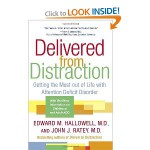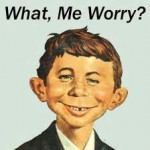Annual Report of AMHF November 1, 2022, to October 31, 2023. As of November 1, 2023, The American Mental Health Foundation has done outstanding work for 100 years. This is the Eleventh Annual Report of The American Mental Health Foundation, an association formed in 1924, incorporated in New York State in 1954. AMHF celebrates eleven decades […]
By:
Evander Lomke
In Profiles in Mental Health Courage Patrick J. Kennedy and Stephen Fried explore mental health and substance abuse in the United States. This is a compelling and humane approach.
By:
Evander Lomke
Annual Report of AMHF November 1, 2021, to October 31, 2022; on November 1, 2022, The American Mental Health Foundation will be 99 years in existence thus rapidly moving into 100. Few not-for-profit organizations can make this claim. This is the Tenth Annual Report of The American Mental Health Foundation (AMHF), an organization formed in […]
By:
Evander Lomke

Michelle Harrison, MD, has joined The American Mental Health Foundation (AMHF) directors’ board as of July 1, 2018. She is the only director also serving on the AMHF professional-advisory board. Dr. Harrison is a U.S. physician of family medicine, psychiatry, and obstetrics with international stature. From 2006 to the present, Dr. Harrison directs Childlife Preserve Shishur Sevay, which […]
By:
Evander Lomke

Michelle Harrison, MD, joins The American Mental Health Foundation professional-advisory board as of June 1, 2018. She is also nominated for its board of directors. Dr. Harrison is a U.S. physician of family medicine, psychiatry, and obstetrics with international stature. From 2006 to the present, Dr. Harrison directs Childlife Preserve Shishur Sevay, which she founded. […]
By:
Evander Lomke

This is film number twenty of twenty-one in the AMHF series, focusing on a range of Hollywood depictions of psychiatry, analysts, and individuals under analysis, from the silent era to the present. (The final film for discussion, an updated version of The Bell Jar, will be included as a kind of “what may be” assuming […]
By:
Evander Lomke

Today’s Washington Post offers yet another article on the effect of (often) well-meaning privacy laws when they are applied to potentially violent persons who are not following treatment guidelines or showing premonitory signs of becoming psychotic along with a chance of potential violence. Wide-ranging privacy laws came into effect under the Health Insurance Privacy and […]
By:
William Van Ornum, Ph.D.

For three days last week American Mental Health Foundation Books shared a booth with its distributor, Lantern, at the annual BookExpo America—which is held at the Jacob Javits Center on New York City’s West Side. (New York remains the publishing capital of North America, even with the multitude of changes the industry has seen.) The […]
By:
William Van Ornum, Ph.D.

A feature story in today’s Washington Post, written by Stephanie McCrummen, offers an intensive look at the week of a 19-year-old man who, two years ago, was diagnosed with paranoid schizophrenia. It is the story of Spencer Haskell, and of his mom, Naomi, who has taken on the task of monitoring her son and making […]
By:
William Van Ornum, Ph.D.

Newly minted pastor Ed Stetzer, writing in CNN.beliefnet, writes of his dealings with a man in his congregation. This person would often disappear for days at a time, and later Stetzer would hear that the fellow had spent hours praying the psalms. Later the man killed himself, leading Stetzer to reflect of aproaches churches could […]
By:
William Van Ornum, Ph.D.

Most of us, unless we have the personalities of saintliness, find ourselves in an irritable mood once in a while. Parents may be particularly prone to these episodes. One hopes that they pass without even a cranky word; although it’s difficult to stifle one’s facial expression. Justin Meyer, writing in the Washington Post, brings refreshing […]
By:
William Van Ornum, Ph.D.

As Edward R. Murrow said, there are two sides to every story. Our previous probing into an increase and acceleration in funding for research into the brain waxed positively. A different viewpoint—now taken by major pharmaceutical industries—suggests that their interest in brain research is waning. Reuters reports the following: “Many pharmaceutical companies harbor deep doubts […]
By:
William Van Ornum, Ph.D.

President Barack Obama made headlines with his proposal to encourage American scientists to work toward understanding the great mysteries of the brain. Done as a massive project, this could rival past collective enterprises such as Getting a Man to the Moon; when President Kennedy suggested this, it took everyone’s breath away. It looked unattainable in […]
By:
William Van Ornum, Ph.D.

Several weeks ago Evander, as part of the series of films on mental health, posted a review of Fear Strikes Out. This unique story–coming out mid-point in outfielder Jimmy Piersall’s career—highlights Piersall’s emotional problems and strange behaviors: talking to Babe Ruth’s statue in the Yankee Stadium outfield, squirting home plate with a water pistol so […]
By:
William Van Ornum, Ph.D.
Amygdala. Corpus Collosum. Dendritic Spines. Voxel. These are words Ferris Jahr, writing in Scientific American, had to add to his Microsoft program in order to avoid all those red squiggles. “Neuron” his program knew, and he thought he knew (May 14, 2012). He did not. Now, Mr. Jahr has begun to appreciate the extraordinary diversity […]
By:
Evander Lomke
It seems we are reminded every day about posttraumatic stress disorder (PTSD). It reveals itself in soldier suicides, which are occurring in a way that is more than we can bear. Shootings continue. In one city (Chicago), one mother has been so badly traumatized: She has lost four children over the years to street violence. […]
By:
William Van Ornum, Ph.D.
From Counseling Today, some recommendations of new books: *The Danger-to-Self-or-Others Exception to Confidentiality (C. Ahia, University Press of America) This topic has been one that has been in the news this past year with tragedies including the movie theater shooting, train deaths in NYC, as well as the Newtown tragedy. The subject is an important […]
By:
William Van Ornum, Ph.D.

Since the Supplement to the U.S. Surgeon General’s Report Mental Health: Culture, Race, and Ethnicity—A Supplement to Mental Health: A Report of the Surgeon General, several events have occurred. These, say Lonnie R. Snowden, have established a national commitment to understanding African American-White American treatment disparities, their consequences, and opportunities for their reduction. Snowden’s article, […]
By:
William Van Ornum, Ph.D.
For Epilepsy Awareness Month, do check out the great Dr. Oliver Sacks, Hallucinations. Sacks discusses the more unusual aspects of this condition (and others) as it affects behavior, and as neurology rubs against the field of psychiatry and even that of theology. You will not be disappointed. Sacks delves into the desperately misunderstood and stigmatized […]
By:
Evander Lomke
Steven R, Lopez, Concepcion Barrio and colleagues address an important cultural topic in the October 2012 edition of American Psychologist: From Documenting to Eliminating Disparities in Mental Health Care for Latinos. The U.S. Surgeon General’s report from 2012—Mental Health: Culture, Race and Ethnicity—A Supplement to Mental Health: Report of the Surgeon General—documents significant disparities in […]
By:
William Van Ornum, Ph.D.
The AMHF grant to Astor Services for Children—to identify and evaluate interventions that help adolescents at risk for suicide and psychosis, and to create scientifically supported guidelines—supports the exact kind of empirical investigation recommended by American Psychological Association President Suzanne Bennett Johnson. In the President’s Column of the July August 2012 APA Monitor (American Psychological […]
By:
William Van Ornum, Ph.D.
AMHF Board Chair Jack Fowler posted the following in National Review Online, The Corner.
By:
William Van Ornum, Ph.D.
From International Bipolar Foundation: “We at International Bipolar Foundation mourn the loss of those killed in the tragic shootings Friday. Our thoughts and prayers go out to the victims’ families and all those affected. “We recognize that this senseless shooting will stimulate many conversations about gun laws, public safety, violence and their association to mental […]
By:
William Van Ornum, Ph.D.

Edward Hallowell and John Ratey have published a follow-up to their successful book Driven to Distraction. On a hopeful note, it is titled Delivered from Distraction. The first book was written in the 1990s. It contains much good advice on ADHD: diagnosis, medications, telling it apart from other conditions as well as finding it in […]
By:
William Van Ornum, Ph.D.

Too many times we view medication and psychological therapies as either/or treatments. Many times people will try to avoid any medication for even a severe mental health problem. Their reasons are always worth noting: perhaps there is a realistic fear of side effects, or a desire to work things out in a trusting relationship. Perhaps […]
By:
William Van Ornum, Ph.D.

In Men In Black III, Tommy Lee Jones and Will Smith, have returned to help police the Earth from what they call invading life forms that represent “the scum of the universe.” No spoiler here–but it’s a must-see film if you want to learn more about the dynamics of the Agent J-Agent K relationship. Once […]
By:
William Van Ornum, Ph.D.

Antipsychotic medications have an interesting history. In the early 20th century, Thorazine was used as an anesthetic during surgery. In the 1940s, a patient with schizophrenia found that after surgery that the delusions and hallucinations had disappeared. Within a few short years this medication was being used for treatment of schizophrenia and two decades later […]
By:
William Van Ornum, Ph.D.

One of the anxiety disorders classified in the DSM-IV-TR is Social Phobia. This can be more deleterious than, say a snake phobia—a social phobia can cause withdrawal from so many important events in one’s life. Social phobia can include fear and avoidance of social situations because of fear of scrutiny and judgment. The person recognizes […]
By:
William Van Ornum, Ph.D.

What Freud called “free floating anxiety” is now known in the DSM-IV TR as Generalized Anxiety Disorder. It’s excessive worry that can’t be controlled by the person who is experiencing it. Symptoms may include restlessness, fatigue, difficulty concentrating, irritability, tension, and sleep disturbances; when several of these reach the point of interfering with an important […]
By:
William Van Ornum, Ph.D.
The American Psychological Association has announced, in the January 2012 issue of American Psychologist, “Guidelines for Assessment of and Intervention With Persons of Disabilities.” This document lists twenty-two practice-guidelines for psychologists who work with persons displaying disabilities of various kinds. The task force for this report was chaired by Kurt F. Geisinger of the University […]
By:
William Van Ornum, Ph.D.
1
2
Next »


























 Host Companion
Host Companion